The Monsanto Company was an American agrochemical and agricultural biotechnology corporation founded in 1901 and headquartered in Creve Coeur, Missouri. Monsanto's best-known product is Roundup, a glyphosate-based herbicide, developed in the 1970s. Later, the company became a major producer of genetically engineered crops. In 2018, the company ranked 199th on the Fortune 500 of the largest United States corporations by revenue.

Precision agriculture (PA) is a farming management strategy based on observing, measuring and responding to temporal and spatial variability to improve agricultural production sustainability. It is used in both crop and livestock production. Precision agriculture often employs technologies to automate agricultural operations, improving their diagnosis, decision-making or performing. The goal of precision agriculture research is to define a decision support system for whole farm management with the goal of optimizing returns on inputs while preserving resources.
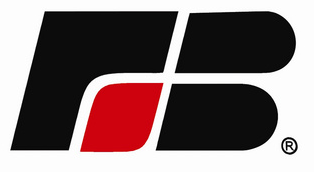
The American Farm Bureau Federation (AFBF), more informally called the American Farm Bureau (AFB) or simply the Farm Bureau, is a United States-based 501(c)(5) tax-exempt agricultural organization and lobbying group. Headquartered in Washington, D.C., the Farm Bureau has affiliates in all 50 states and Puerto Rico. Each affiliate is a (state or county) Farm Bureau, and the parent organization is also often called simply the Farm Bureau.

Deere & Company, doing business as John Deere, is an American corporation that manufactures agricultural machinery, heavy equipment, forestry machinery, diesel engines, drivetrains used in heavy equipment and lawn care equipment. It also provides financial services and other related activities.

DTN, previously known as Telvent DTN, Data Transmission Network and Dataline, is a private company based in Bloomington, Minnesota that specializes in subscription-based services for the analysis and delivery of real-time weather, agricultural, energy, and commodity market information. As of 2018 the company has approximately 600,000 subscribers, mostly in the United States. DTN is known for its accurate meteorological forecasting and large network of weather stations, its market analysis services, and its early use of radio and satellite systems to transmit reports to its Midwestern consumers. DTN also operates The Progressive Farmer magazine. DTN was previously owned by Telvent and Schneider Electric, and since 2017 has been owned by Zürich-based TBG.

AGCO Corporation is an American agricultural machinery manufacturer headquartered in Duluth, Georgia, United States. It was founded in 1990. AGCO designs, produces and sells tractors, combines, foragers, hay tools, self-propelled sprayers, smart farming technologies, seeding equipment, and tillage equipment.

Monsanto Canada Inc v Schmeiser [2004] 1 S.C.R. 902, 2004 SCC 34 is a leading Supreme Court of Canada case on patent rights for biotechnology, between a Canadian canola farmer, Percy Schmeiser, and the agricultural biotechnology company Monsanto. The court heard the question of whether Schmeiser's intentionally growing genetically modified plants constituted "use" of Monsanto's patented genetically modified plant cells. By a 5-4 majority, the court ruled that it did. The Supreme Court also ruled 9-0 that Schmeiser did not have to pay Monsanto their technology use fee, damages or costs, as Schmeiser did not receive any benefit from the technology. The case drew worldwide attention and is widely misunderstood to concern what happens when farmers' fields are accidentally contaminated with patented seed. However, by the time the case went to trial, all claims of accidental contamination had been dropped; the court only considered the GM canola in Schmeiser's fields, which Schmeiser had intentionally concentrated and planted. Schmeiser did not put forward any defence of accidental contamination.
Since the advent of genetic engineering in the 1970s, concerns have been raised about the dangers of the technology. Laws, regulations, and treaties were created in the years following to contain genetically modified organisms and prevent their escape. Nevertheless, there are several examples of failure to keep GM crops separate from conventional ones.

Genetically modified food controversies are disputes over the use of foods and other goods derived from genetically modified crops instead of conventional crops, and other uses of genetic engineering in food production. The disputes involve consumers, farmers, biotechnology companies, governmental regulators, non-governmental organizations, and scientists. The key areas of controversy related to genetically modified food are whether such food should be labeled, the role of government regulators, the objectivity of scientific research and publication, the effect of genetically modified crops on health and the environment, the effect on pesticide resistance, the impact of such crops for farmers, and the role of the crops in feeding the world population. In addition, products derived from GMO organisms play a role in the production of ethanol fuels and pharmaceuticals.

The Early Girl tomato is a medium-sized globe-type F1 hybrid popular with home gardeners because of its early ripening fruit. Early Girl is a cultivar of tomato with indeterminate growth, which means it produces flowers and fruit until it is killed by frost or another external factor. It grows tall, therefore it needs support as the plant grows. Fruit maturity ranges from 50 to 62 days after transplanting, depending on the source, which appeals to growers in climates with shorter growing seasons. Early Girl can tolerate temperatures as low as 40 °F (4 °C) and is well-suited to hot, dry climates. Early girl is reliable and prolific.
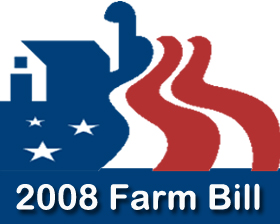
In the United States, the farm bill is comprehensive omnibus bill that is the primary agricultural and food policy instrument of the federal government. Congress typically passes a new farm bill every five to six years.
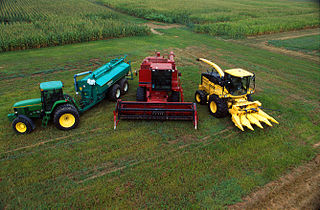
Agricultural machinery relates to the mechanical structures and devices used in farming or other agriculture. There are many types of such equipment, from hand tools and power tools to tractors and the farm implements that they tow or operate. Machinery is used in both organic and nonorganic farming. Especially since the advent of mechanised agriculture, agricultural machinery is an indispensable part of how the world is fed.

A driverless tractor is an autonomous farm vehicle that delivers a high tractive effort at slow speeds for the purposes of tillage and other agricultural tasks. It is considered driverless because it operates without the presence of a human inside the tractor itself. Like other unmanned ground vehicles, they are programmed to independently observe their position, decide speed, and avoid obstacles such as people, animals, or objects in the field while performing their task. The various driverless tractors are split into full autonomous technology and supervised autonomy. The idea of the driverless tractor appears as early as 1940, but the concept has significantly evolved in the last few years. The tractors use GPS and other wireless technologies to farm land without requiring a driver. They operate simply with the aid of a supervisor monitoring the progress at a control station or with a manned tractor in lead.
Genetic engineering in Hawaii is a hotly contested political topic. The Hawaiian Islands counties of Kauai, Hawaii and Maui passed or considered laws restricting the practice within their borders due to concerns about the health, the environment and impacts on conventional and organic agriculture.
Monsanto was involved in several high-profile lawsuits, as both plaintiff and defendant. It had been defendant in a number of lawsuits over health and environmental issues related to its products. Monsanto also made frequent use of the courts to defend its patents, particularly in the area of agricultural biotechnology. Bayer acquired Monsanto in 2018, and the company has since been involved in litigation related to ex-Monsanto products such as glyphosate, PCBs and dicamba. In 2020 it paid over $10 billion to settle lawsuits involving the glyphosate based herbicide Roundup.

The National Corn Growers Association (NCGA) is an association that represents and advocates for the interests of corn growers in the United States. It is distinct from the American Corn Growers Association, a competing organization set up in 1987.
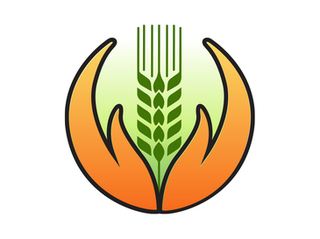
The Pradhan Mantri fasal bima yojana (PMFBY) launched on 18 February 2016 by Prime Minister Narendra Modi is an insurance service for farmers for their yields. It was formulated in line with One Nation–One Scheme theme by replacing earlier two schemes Agricultural insurance in India#National Agriculture Insurance Scheme and Modified National Agricultural Insurance Scheme by incorporating their best features and removing their inherent drawbacks (shortcomings). It aims to reduce the premium burden on farmers and ensure early settlement of crop assurance claim for the full insured sum.
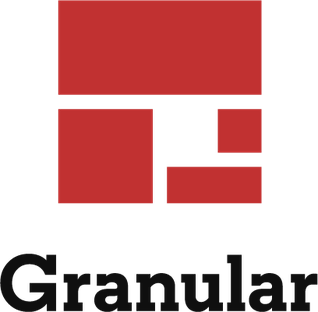
Granular Inc. is a San Francisco-based agricultural software development company focused on helping farmers be more profitable and efficient. The company's software products provide farmers tools to manage their financial performance and manage agronomic inputs for maximum performance and return. In addition to digital tools for farmers, Granular also owns AgStudio, a precision ag software company used primarily by ag retailers and professional agronomists, as well as AcreValue, a website that uses proprietary algorithms to provide estimated land values.
Adapt-N is a precision nitrogen management solution operated by Agronomic Technology Corp. It was developed at Cornell University. It examines soil, weather, crop, field management data to provide an always-on, field-specific nitrogen recommendation that has been shown to improve financial and environmental performance.

David Albert Friedberg is an American entrepreneur, businessman, and angel investor. He founded and was chief executive of The Climate Corporation, whose $1.1 billion sale to Monsanto in 2013 made it the first unicorn in the emerging agricultural technology space. He is founder and CEO of The Production Board (TPB). He is a co-host of the All-In podcast, alongside David Sacks, Jason Calacanis & Chamath Palihapitiya. Spanning his career, he has contributed to 32 patents.















